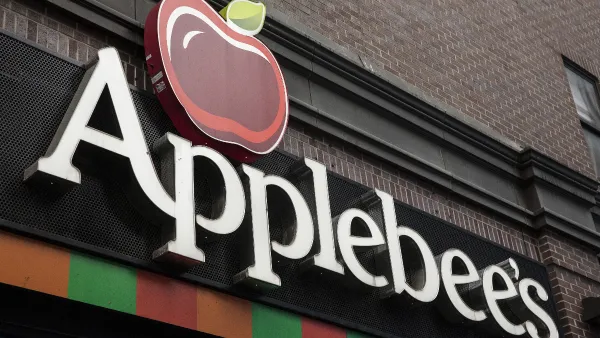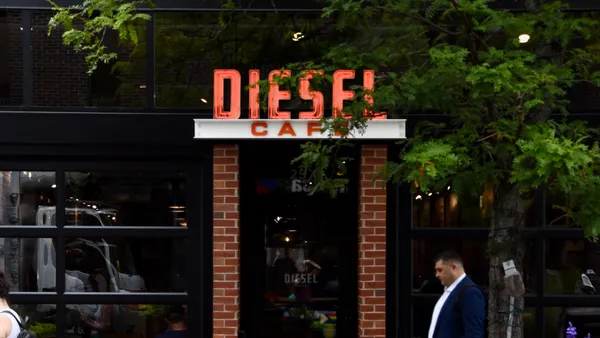Dive Brief:
- One Table Restaurant Brands, the parent company of the 24-unit chain Tender Greens and the 15-unit chain Tocaya, filed for Chapter 11 bankruptcy protections Wednesday, court documents show.
- One Table was created in 2021 after the COVID-19 devastated Tender Greens and Tocaya. The unusual business combination was intended to “provide a leveraged platform of shared people resources and supply chain synergies,” according to a declaration in support of the company’s bankruptcy filed by CEO Harald Herrmann on Thursday.
- The company was also impacted by high debt following the business combination, as well as a loss of traffic and high commission rates for third-party delivery, according to Herrmann.
Dive Insight:
Both brands never saw their sales volumes recover from COVID-19, with Tender Greens average unit volume falling from $3.4 million in 2019 to $2.9 million in 2023, a partial recovery from its 2020 low of $2.3 million. Tocaya’s AUV slid from $3.4 million to $2.1 million in 2023, its lowest AUV including 2020, Herrmann said.
In addition to falling sales, four-wall profits slid at both brands, from 16% at Tender Greens and 13.1% at Tocaya before the pandemic to a present level of 9.4% and 1.6%, respectively.
When the brands combined, both were carrying debt used to finance expansion between 2017 and 2019, according to Herrmann’s declaration. That debt was consolidated as part of the combination, but became unsustainable as profits and sales fell and interest rates increased. The interest rate on the company’s $28 million credit agreement rose from 11.6% at the time of the merger to 15.9% today.
One Table attributed the shortfall in part to a loss of traffic from office workers that has persisted over the years. The brands are based in California and Arizona and were particularly dependent on downtown foot traffic in Los Angeles, according Herrmann. At the same time, sales shifted towards third-party carryout and delivery, which now comprise 30% to 40% of the company’s sales volume. This has generally been to the disadvantage of the company.
“A commission rate of between 15%-18% depending upon the provider, coupled with related packaging costs of 4%, make these sales less profitable,” Herrmann wrote in the declaration. “Passing this entire cost along to the consumer is not possible as it would have a negative impact on demand for the Restaurants.”
From 2021 to 2023, the chains were part of an exclusive sales agreement with Uber Eats and Postmates, which included a sales volume guarantee; to meet that guarantee the delivery platforms, Herrmann alleges, discounted to such an extreme degree that it was cheaper to order delivery than to eat in one of the restaurants.
The company also cited general inflationary pressures and the impact of the FAST Act on California labor markets. While the law does not apply to One Table’s brands — neither are large enough to be requires to pay $20 an hour — restaurant executives predicted at the time of its passage that smaller chains would need to raise wages to remain competitive.
2024 has seen a number of major restaurant bankruptcies. Red Lobster, for example, filed for Chapter 11 protections earlier this year after sale-leaseback transactions pushed its real estate costs up. Both Tijuana Flats and Rubio’s Coastal Grill went bankrupt, with the latter citing California labor costs.














